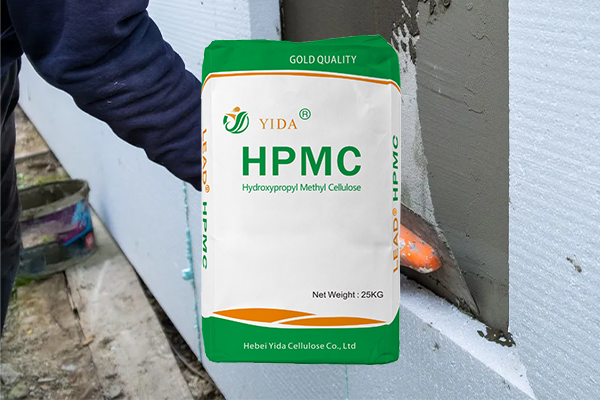Hydroxypropyl methylcellulose (HPMC), also known as hydroxypropyl methylcellulose or cellulose hydroxypropyl methyl ether, is a versatile and widely used chemical compound. It belongs to the family of non-ionic cellulose ethers and is a semi-synthetic, inactive, viscoelastic polymer. Its wide range of applications, from the construction industry to food and pharmaceuticals, makes it an essential raw material in numerous markets. In this blog post, we will explore the pricing dynamics of hydroxypropyl methylcellulose, provide insights into its market trends, and present a comparison table of prices from various suppliers.
The global market for hydroxypropyl methylcellulose has been experiencing steady growth over the past few years. According to recent market research reports, the market size is projected to reach $25.8 billion by 2030, with a compound annual growth rate (CAGR) of 5.5% from 2024 to 2030. This growth can be attributed to increasing demand from the construction, pharmaceutical, and food industries. In particular, the pharmaceutical sector is seeing a surge in demand for HPMC due to its use in the production of plant-based capsules, which are gaining popularity as a safer and more sustainable alternative to animal-derived gelatin capsules.

Pricing for hydroxypropyl methylcellulose varies significantly depending on factors such as purity, viscosity, packaging, and supplier location. For instance, industrial-grade HPMC used in construction applications is typically priced lower than pharmaceutical-grade HPMC due to differences in quality standards and production processes. Additionally, regional variations in raw material costs, labor expenses, and transportation fees also play a crucial role in determining the final price of HPMC.
To illustrate the pricing variations in the market, let's examine the prices offered by different suppliers across China and other regions. According to recent data, prices for hydroxypropyl methylcellulose range from approximately 50to165 per kilogram, depending on the supplier and the specifications of the product. For example, a supplier in Shanghai offers a brand called Klamar with a price of 1.65pergram(or165 per kilogram) for bulk orders of 100 grams or more. This product is available in various packaging sizes, including 5kg, 10kg, 25kg, and 100kg.
On the other hand, suppliers in regions like Hebei and Anhui offer lower prices, ranging from 0.55to0.74 per kilogram, depending on the order quantity. These suppliers typically cater to a broader market, including both industrial and food-grade applications. It's worth noting that prices may fluctuate due to market conditions, raw material availability, and currency exchange rates.
Several factors contribute to the pricing variations observed in the hydroxypropyl methylcellulose market. The first is the purity and viscosity of the product. Higher purity and viscosity grades are typically more expensive due to the rigorous production processes and quality control measures required to achieve these specifications. Additionally, the type of packaging and shipping costs can also impact the final price. For instance, bulk orders may benefit from lower per-unit pricing due to economies of scale.
Geographic location is another significant factor. Suppliers in regions with lower labor costs and access to abundant raw materials can offer more competitive pricing. However, transportation costs and tariffs can offset these savings for buyers in distant markets. Furthermore, regulatory requirements and quality standards in different countries can affect production costs and, consequently, pricing.
Below is a comparison table of hydroxypropyl methylcellulose prices from various suppliers:
| Supplier Location | Price per Kilogram (USD) | Packaging Options |
|---|---|---|
| Shanghai, China | 1.8-3.5 | 100g, 5kg, 10kg, 25kg, 100kg |
| Hebei, China | 1.5-3.4 | Bulk Packaging |
| Anhui, China | 1.8-3.5 | Bulk Packaging |
| Sichuan, China | 1.5-3.4 | Bulk Packaging |
| Shandong, China | 1.8-4.0 | Bulk Packaging |
| Jiangsu, China | 2.0-3.8 | Bulk Packaging |
| Henan, China | 1.2-3.5 | Bulk Packaging |
| Guangdong, China | 1.9-2.7 | Bulk Packaging |
In conclusion, the pricing of hydroxypropyl methylcellulose is influenced by a multitude of factors, including purity, viscosity, packaging, supplier location, and market conditions. As the global market for this versatile compound continues to grow, buyers should stay informed about pricing trends and supplier offerings to make informed purchasing decisions. Whether you are in the construction, pharmaceutical, or food industry, understanding the pricing dynamics of hydroxypropyl methylcellulose will help you optimize your supply chain and reduce costs.
Previous: The difference between nitrile rubber and latex
Next: Industrial Gases: What are They and How are They Used?
Copyright:@2020-2021
Comments Please sign in or sign up to post.
0
0 of 500 characters used